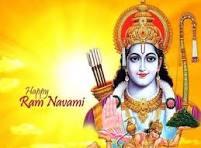Ram Navami: The Festival of Divine Blessings and Cultural Heritage
Introduction
Ram Navami, a significant Hindu festival, marks the birth of Lord Rama, the embodiment of righteousness, truth, and devotion. Celebrated on the ninth day of Chaitra Navratri, it signifies the arrival of divine virtues in human form. Devotees observe this day with fasting, prayers, and grand festivities to honor the ideals that Lord Rama represents.
To understand the cultural and modern relevance of Ram Navami, read this insightful article.
The Story Behind Ram Navami
1. The Birth of Lord Rama
According to Hindu mythology, Lord Rama was born in Ayodhya to King Dasharatha and Queen Kaushalya after a sacred yajna (fire ritual). His birth was destined to eliminate evil and establish dharma (righteousness). The Ramayana narrates his journey of valor, sacrifice, and justice, making him a revered figure in Hindu tradition.
2. The Divine Purpose of Lord Rama’s Life
Lord Rama’s life was filled with challenges that tested his virtues. His key missions included:
- Restoring Dharma: He upheld righteousness and became an ideal leader.
- Defeating Ravana: He eliminated evil and protected devotees.
- Teaching Moral Values: His life is a lesson in devotion, duty, and selflessness.
These teachings continue to influence spiritual and ethical living today.
How is Ram Navami Celebrated?
1. Devotional Activities and Temple Celebrations
The day is observed with various religious rituals, including:
- Special Pujas: Devotees perform elaborate prayers to Lord Rama.
- Ramayana Recitation: The story of Rama is read and narrated in homes and temples.
- Chanting Bhajans: Devotional songs create a spiritually uplifting atmosphere.
- Offering Prasad: Devotees prepare and distribute sweets and fruits as offerings.
2. The Tradition of Fasting
Many devotees observe a vrat (fast) to seek Lord Rama’s blessings. The fasting includes:
- Consuming simple and sattvic (pure) foods.
- Avoiding grains and spicy foods.
- Breaking the fast after performing evening prayers.
3. Grand Processions and Cultural Programs
Across India, grand processions, known as Shobha Yatras, are held, featuring:
- Beautifully decorated idols of Lord Rama, Sita, Lakshmana, and Hanuman.
- Devotees singing Ram Bhajans and chanting Jai Shri Ram.
- Enactments of Ram Leela, showcasing Lord Rama’s life and teachings.
These celebrations bring people together, fostering a sense of unity and devotion.
Lessons from Lord Rama’s Life
1. The Importance of Truth and Integrity
Lord Rama’s life teaches us:
- To always stand by truth, no matter the circumstances.
- To lead a life based on honesty and ethical values.
- To respect and uphold justice in personal and professional spheres.
2. The Power of Patience and Devotion
Lord Rama faced many hardships, including exile and battles. His journey teaches:
- Perseverance in adversity.
- Faith in divine justice.
- Dedication to duty and service.
3. Leadership and Ideal Governance
Lord Rama’s rule, known as Rama Rajya, symbolizes an ideal society with:
- Fairness and justice for all.
- Compassionate leadership.
- Ethical decision-making.
His leadership principles remain relevant for modern governance.
The Modern Relevance of Ram Navami
1. A Time for Spiritual Reflection
Ram Navami encourages individuals to:
- Reflect on personal values and ethics.
- Seek inner peace through devotion.
- Practice gratitude and humility in daily life.
2. Strengthening Family and Social Values
Lord Rama’s love and respect for his family serve as an example to:
- Value relationships over material wealth.
- Support and protect loved ones.
- Foster unity and harmony in families.
3. Overcoming Life’s Challenges
Lord Rama’s journey is an inspiration for:
- Facing obstacles with determination.
- Believing in divine guidance.
- Rising above difficulties with courage and wisdom.
These lessons are valuable for both personal and professional growth.
Ways to Celebrate Ram Navami Today
1. Observing Rituals and Prayers
Devotees can celebrate by:
- Reading the Ramayana for spiritual wisdom.
- Chanting Shri Ram Mantras for divine blessings.
- Meditating on Lord Rama’s teachings.
2. Engaging in Charity and Social Service
Ram Navami is an occasion for acts of kindness, such as:
- Distributing food to the needy.
- Donating to temples and religious organizations.
- Helping underprivileged communities.
These actions reflect Lord Rama’s compassionate nature.
3. Digital Celebrations and Social Media Outreach
In the modern era, people can celebrate through:
- Online bhajans and virtual pujas.
- Digital storytelling and discussions.
- Sharing inspirational messages on social media.
This helps spread the significance of the festival to a global audience.
Conclusion
Ram Navami is not just a religious festival—it is a celebration of truth, devotion, and righteousness. Lord Rama’s teachings continue to inspire people to live a life of wisdom, morality, and inner peace.
To explore more about Ram Navami, visit this detailed article.
